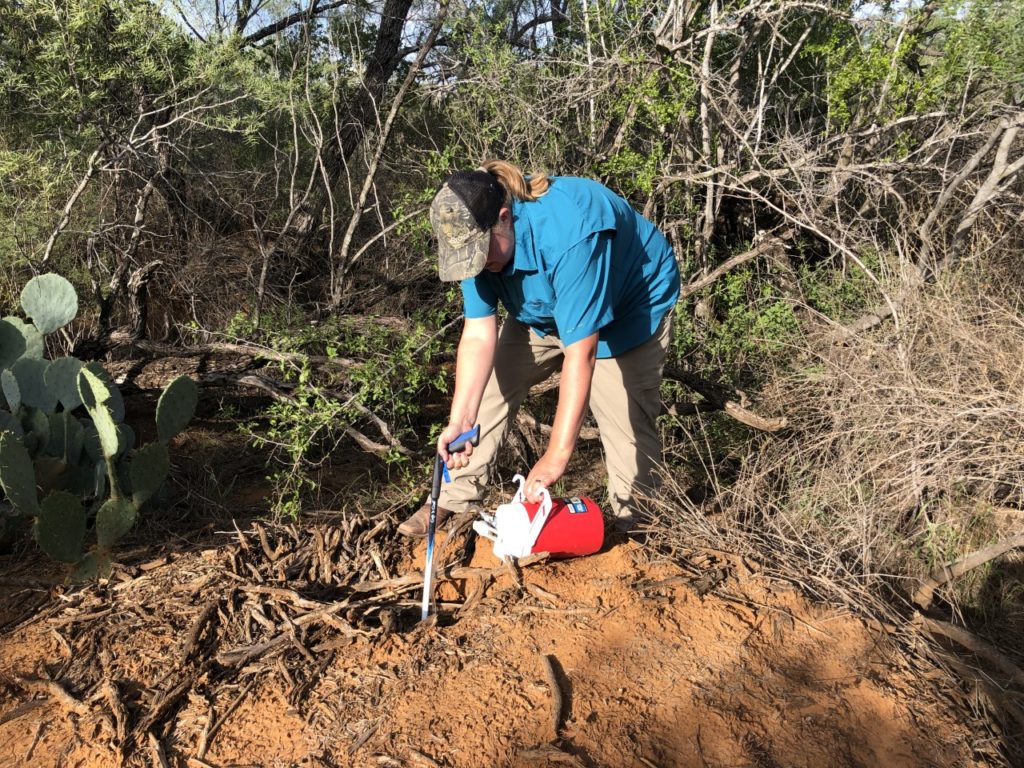About the Project
The Search for ticks in burrows of wild animals in Texas

Background
Soft ticks (Family: Argasidae) are vectors of relapsing fever Borrelia in the United States, and potential vectors of African Swine Fever virus, a pathogen that could have a devastating effect on the U.S. swine industry if introduced to the U.S. mainland. One of the current projects undertaken by the Kaufman lab aims to improve our knowledge of the host use and ecology of soft ticks in south Texas.
To this end, CO2-baited sticky traps are deployed in animal burrows, culverts, and other cracks, crevasses, and sheltered areas that may provide refuge for soft ticks. Collected tick samples are subjected to blood-meal analysis and pathogen screening to determine what host species they have fed upon and if they are associated with pathogens that may be of concern for human and animal health.
This research will help to improve our knowledge of the range of soft tick species present in south Texas and the ecological relationships between soft ticks and their hosts. This will aid efforts to identify and mitigate tick-borne disease risks to both humans and domestic animals in south Texas while providing valuable information on the relationships between these ticks, native and exotic wildlife, and livestock.
